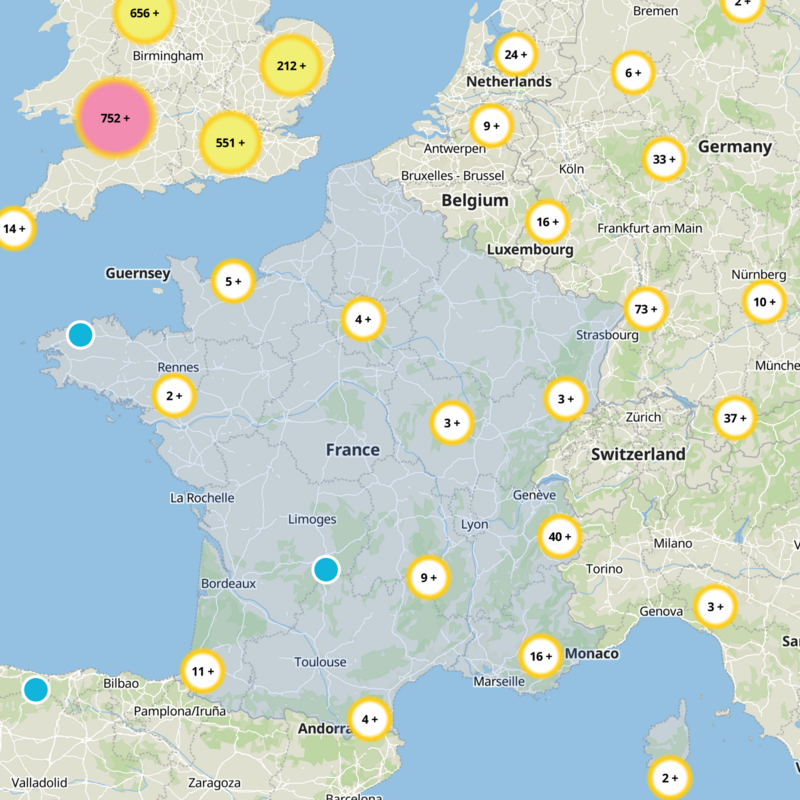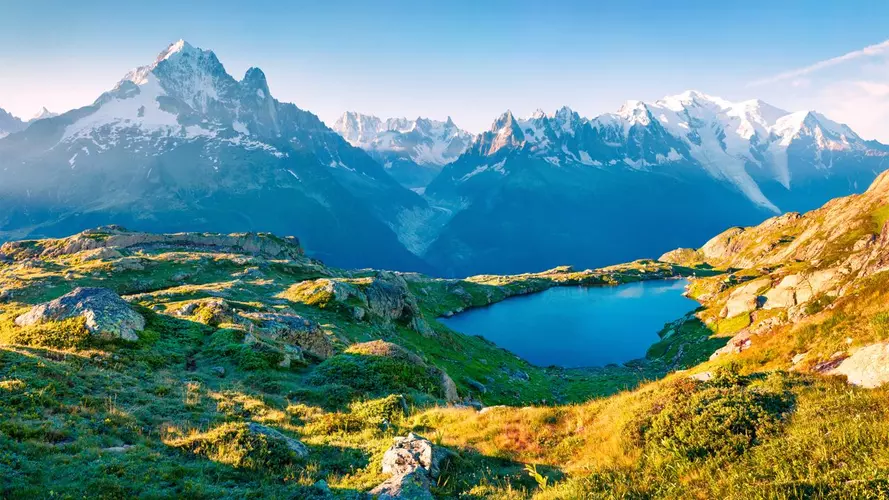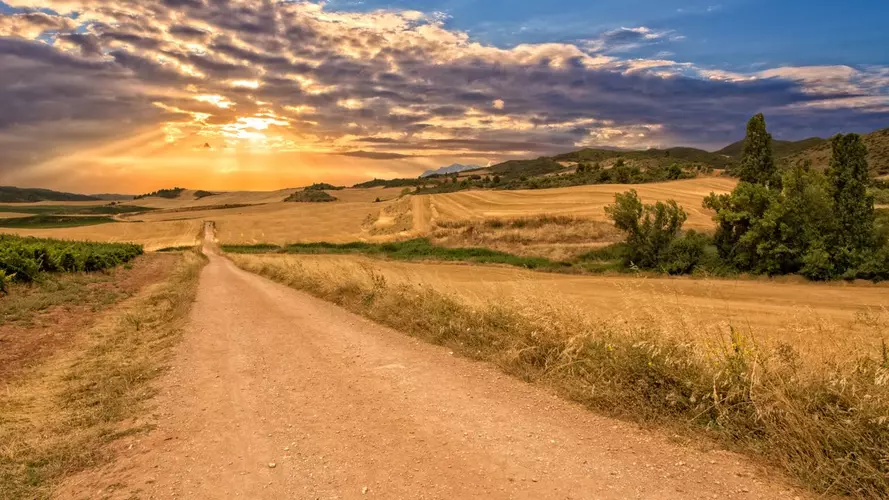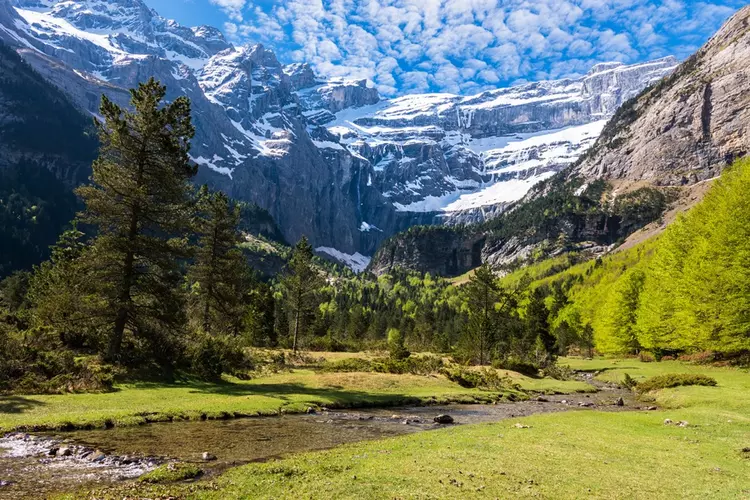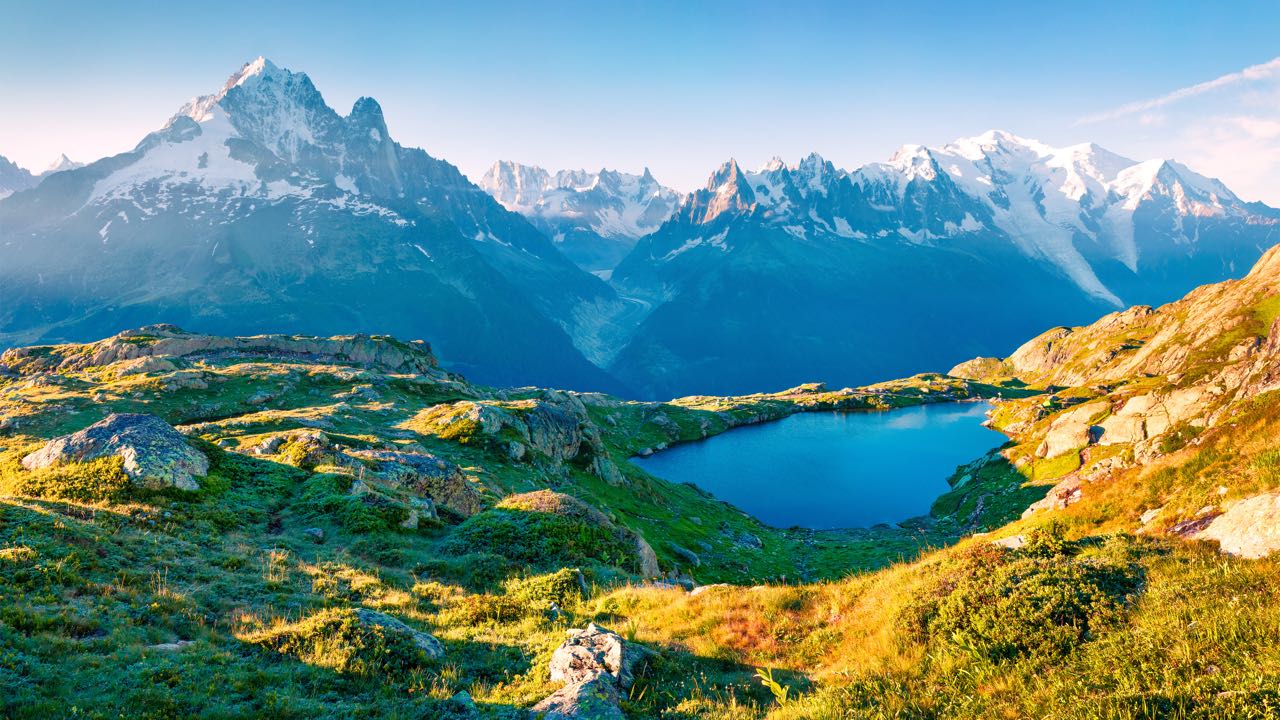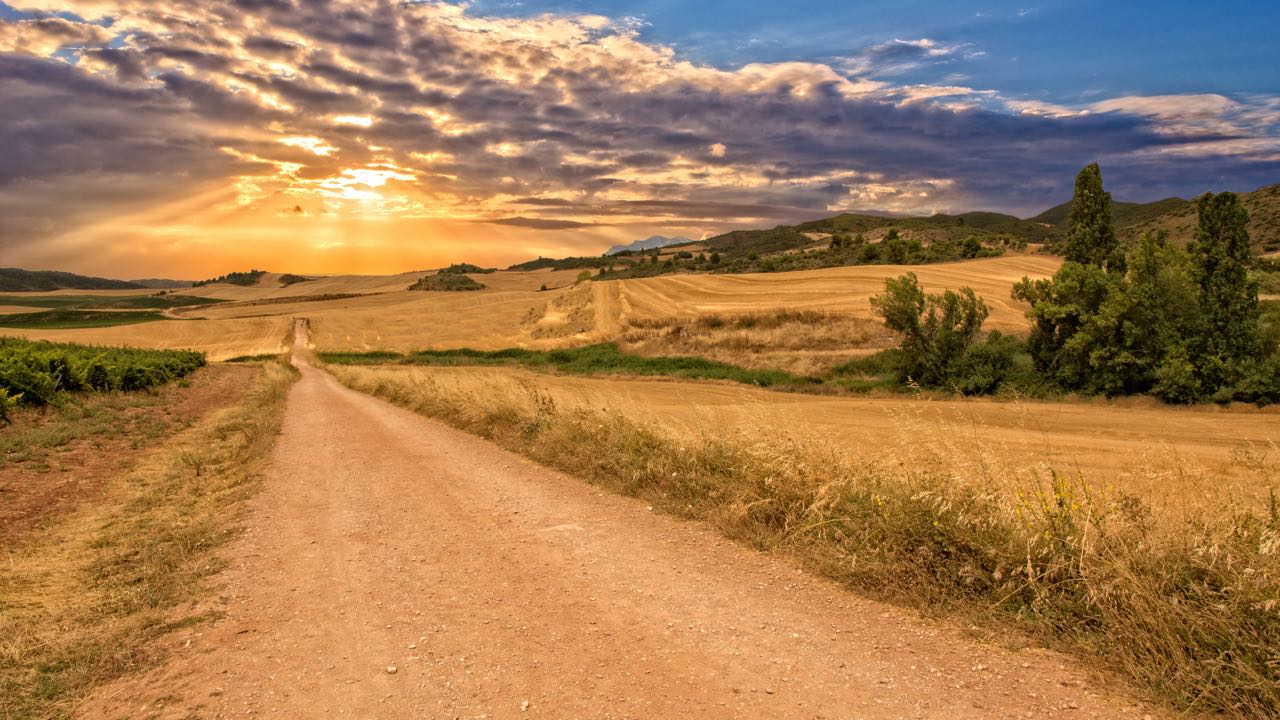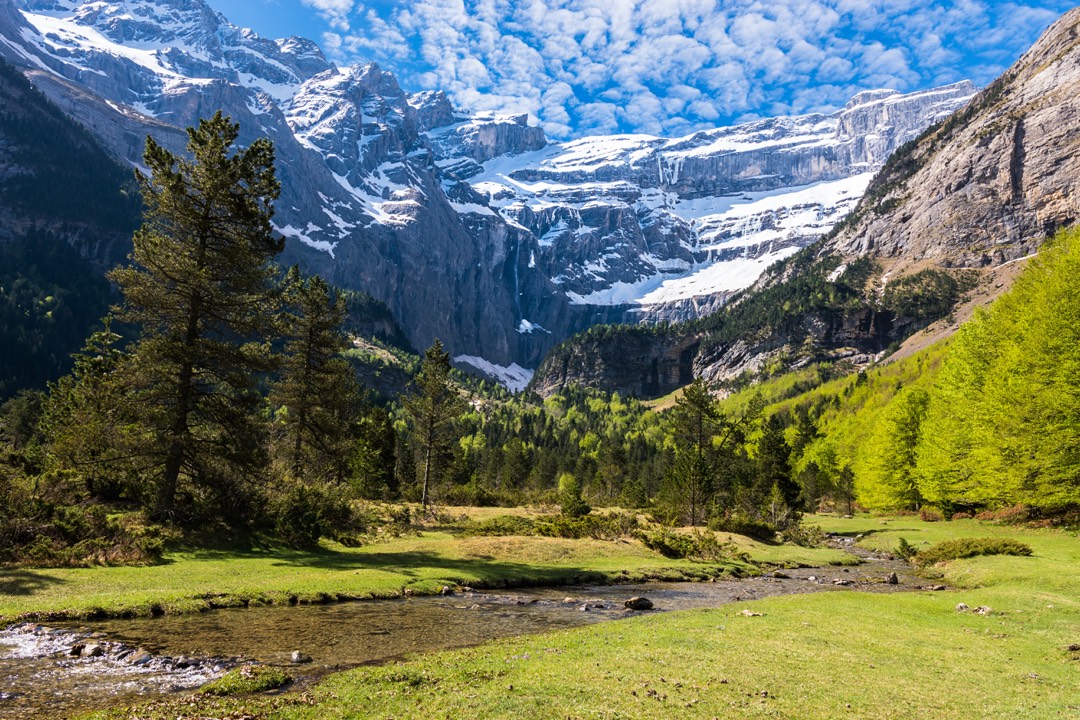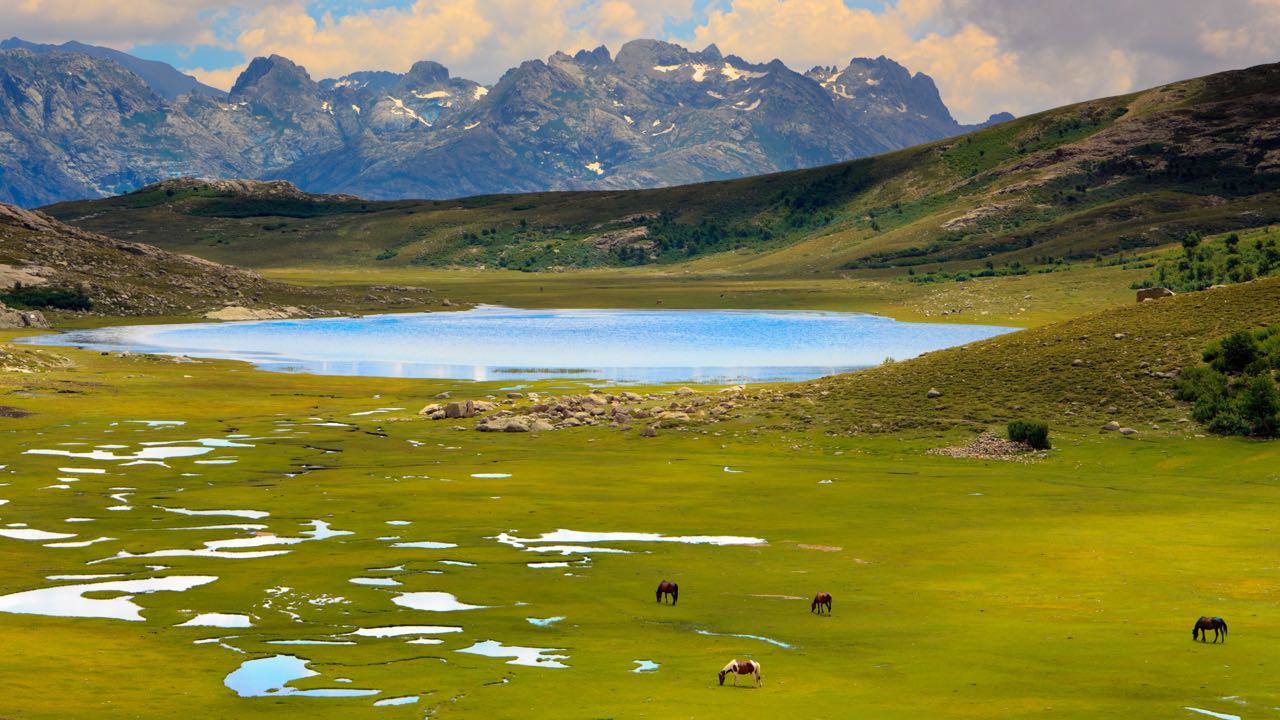What to expect
France has 93 trails
including medium, difficult, extra difficult, and easy trails.
The trail with the highest elevation climb is the Dune Du Pilat
and the one with the least climb is the Goûter Route.
The longest trail is HexaTrek
at 3040 km. To complete this hike you should budget at least 201 days.
For a shorter adventure, you can try the Parcours de Lucelle
a t 2.25 km. This could be done in as little as 1 days.
Trails with the best offering of hostels include
GR 223, Dune Du Pilat, Gavarnie - Gavarnie Cirque, GR 65 Rocamadour Variant, and Cirque De Gavarnie.

FAQs about hiking in France

France's diverse climate presents hikers with a broad palette of experiences across seasons. Winter in mountainous regions like the Alps and Pyrenees, offers a snow-clad challenge, while the milder Mediterranean coast provides a respite. Hikers should equip accordingly to manage the cold and possible snowfall in these periods.
Spring and autumn are considered ideal for hiking due to moderate temperatures and less crowded trails. Regions such as Provence and the Loire Valley burst into a riot of colors, offering a picturesque backdrop for your adventure. Be prepared for rain, however, as these are France's wettest seasons.
Summer, particularly June to August, is perfect for exploring cooler areas like Brittany or the high-altitude trails in the Alps and Pyrenees. However, with France being a popular tourist destination, anticipate larger crowds. Additionally, southern regions can become excessively hot, necessitating hydration and sun protection. For comprehensive hiking route ideas, see [Randonnées en France](https://www.gr-infos.com/gr-en.htm).
Spring and autumn are considered ideal for hiking due to moderate temperatures and less crowded trails. Regions such as Provence and the Loire Valley burst into a riot of colors, offering a picturesque backdrop for your adventure. Be prepared for rain, however, as these are France's wettest seasons.
Summer, particularly June to August, is perfect for exploring cooler areas like Brittany or the high-altitude trails in the Alps and Pyrenees. However, with France being a popular tourist destination, anticipate larger crowds. Additionally, southern regions can become excessively hot, necessitating hydration and sun protection. For comprehensive hiking route ideas, see [Randonnées en France](https://www.gr-infos.com/gr-en.htm).

In France, most hiking trails are open to the public and do not require permits. However, for activities like camping or accessing certain protected areas, it's advised to check with local authorities or the French National Forestry Office. Detailed guidelines can be obtained from [France's Official Tourism Website](https://www.france.fr/en).

In France, wild camping is generally prohibited, particularly in protected areas such as national parks. However, "bivouacking" (temporary, overnight camping) may be allowed under certain conditions. To avoid penalties and protect the environment, it's crucial to consult with local authorities or refer to [France's Official Tourism Website](https://www.france.fr/en).

In France, mountain rescues are primarily handled by the "Peloton de Gendarmerie de Haute Montagne" (PGHM). In case of an emergency while hiking, dial 112, the pan-European emergency number. For a comprehensive guide on safety, consult the [French Mountain Rescue Services' website](https://www.pghm.fr/).

France's rich biodiversity offers hikers a diverse array of flora across regions. From lush vineyards in Bordeaux, lavender fields in Provence, to alpine flowers in the Pyrenees, each hike presents unique botanical encounters. A comprehensive guide to France's flora can be found at [Tela Botanica](https://www.tela-botanica.org/).

France's diverse ecosystems teem with varied wildlife. Hikers may encounter boars in forested areas, marmots in the Alps, and cicadas in Provence. However, be aware of ticks and mosquitoes in certain regions. For more on French fauna, visit the [French National Biodiversity Agency](https://inpn.mnhn.fr/).
